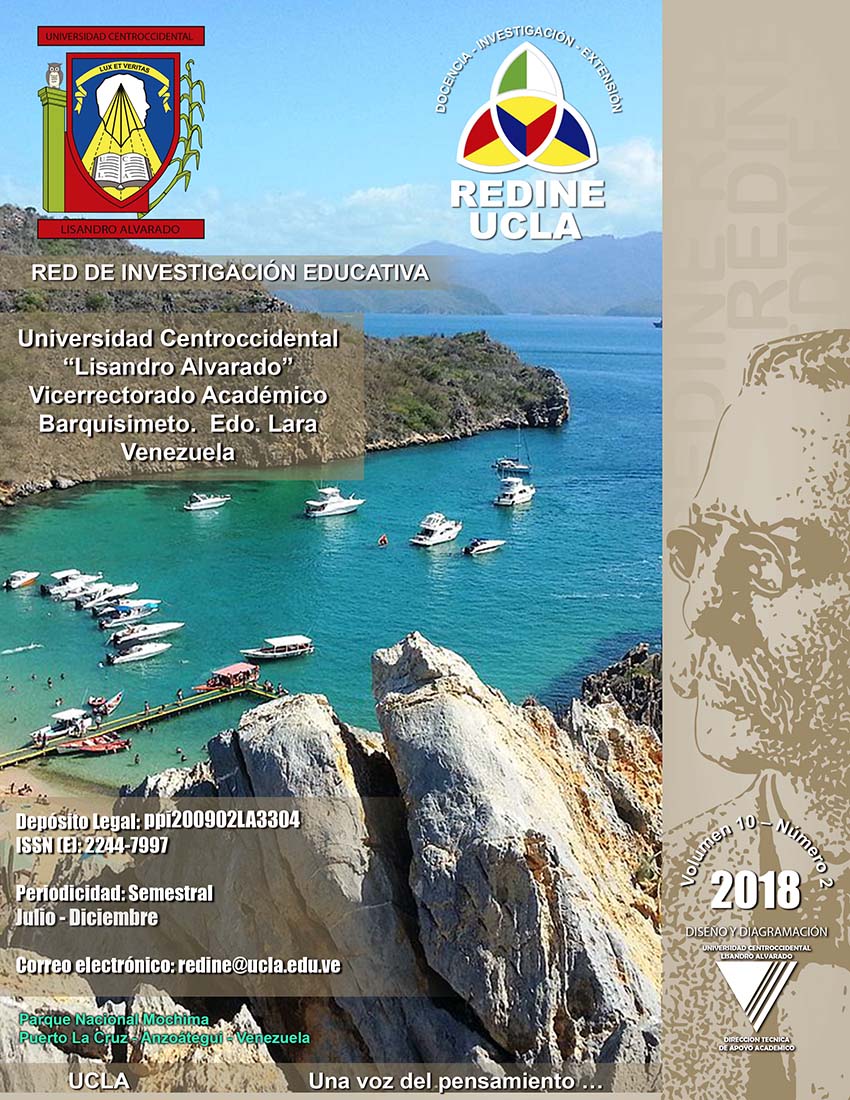civic and citizen formation of the child (and adolescent): social responsibility of the venezuelan basic school
Keywords:
socialization, ethics, social responsibility, citizenshipAbstract
The school trains people who can live together in a climate of respect, tolerance, participation and freedom, capable of integrating knowledge and ethical and moral valuation, who are citizens respectful of the legal norms that will strengthen their social participation, a primary challenge for the countries with democratic systems. The objective of this research is to interpret the implications of the social responsibility of the school in the construction of citizenship. It is based on the theoretical approaches on morals, ethics and social responsibility of the Venezuelan researchers Gómez (2005, 2008) and Guédez (2002, 2006); on principles and leadership of Covey (2002) and Senge (1993); on education by Berguer, Luckman (1968) and Morín (2002). The methodology is approached from an ethnographic orientation within the interpretive approach. Unstructured, open and flexible interviews were conducted with teachers and directors of Basic Education of the National Education Unit "Tomás Liscano" of Quíbor, Jiménez Municipality of Lara State. From the analysis of the stories emerge the categories of analysis: Student Socialization, Teacher Ethics, School Social Participation. As a final non-final reflection I infer: the school is the center of socialization par excellence, students are the object of the processes of internalization, objectification and legitimization of the social order, from which the norms and values of their culture are transmitted, in accordance to individual and collective interests; the crisis of values of the current Venezuelan society provokes an ethical rupture in the teachers: inconsistency between saying and doing, under commitment with the school and lack of responsibility with the community; Many have declined in their role as educators of citizens based on universal values, an obligation of the Venezuelan State.
Downloads
References
Covey Stephen R. (1993). El Liderazgo basado en Principios. Barcelona, España.
Guédez, V. (2006). Ética y práctica de la responsabilidad social empresarial. Caracas. Planeta.
González, E. (2006). Gerencia y Calidad de Gestión en las Instituciones Educativas. IV Encuentro de la Red de Docentes de América Latina. KIPUS. La Asunción. Venezuela.
Gómez, E. (2005). La Responsabilidad Moral de la Empresa Capitalista. Caracas. Cedice.
Kohlberg, L. y Mayer, R. (s/f) (et.al). El Desarrollo del Educando como Finalidad de la Educación. Valencia. Vadell Hermanos.
Maturana, H. (2007). Amor y Juego. Fundamentos Olvidados de lo Humano. Desde el Patriarcado Hasta la Democracia. Paidos. España.
Martínez, M. (2000). La Investigación Cualitativa Etnográfica en Educación. México. Trillas.
Márquez E. (2004). La Investigación Cualitativa en el Estudio de la Identidades Colectivas Agrícolas en Venezuela. Caracas. Ediciones del Rectorado de la UNESR.
Morín, E. (2002). Los Sietes Saberes Necesarios para la Educación del Futuro. Madrid. Paidos.
Navarro y Díaz (1998). Métodos y Técnicas Cualitativas de Investigación en las Ciencias Sociales. Madrid. Síntesis.
Senge, P. (1993). La Quinta Disciplina. Buenos Aires. Argentina: Granica.
Published
How to Cite
Issue
Section
Derechos del/de autor/es a partir del año de publicación
Esta obra está bajo la licencia:
Creative Commons Reconocimiento-NoComercial-CompartirIgual 4.0 Internacional (CC BY-NC-SA 4.0)
Las opiniones expresadas por los autores no necesariamente reflejan la postura del editor de la publicación ni de la UCLA. Se autoriza la reproducción total o parcial de los textos aquí publicados, siempre y cuando se cite la fuente completa y la dirección electrónica de esta revista. Los autores(as) tienen el derecho de utilizar sus artículos para cualquier propósito siempre y cuando se realice sin fines de lucro. Los autores(as) pueden publicar en internet o cualquier otro medio la versión final aprobada de su trabajo, luego que esta ha sido publicada en esta revista.




